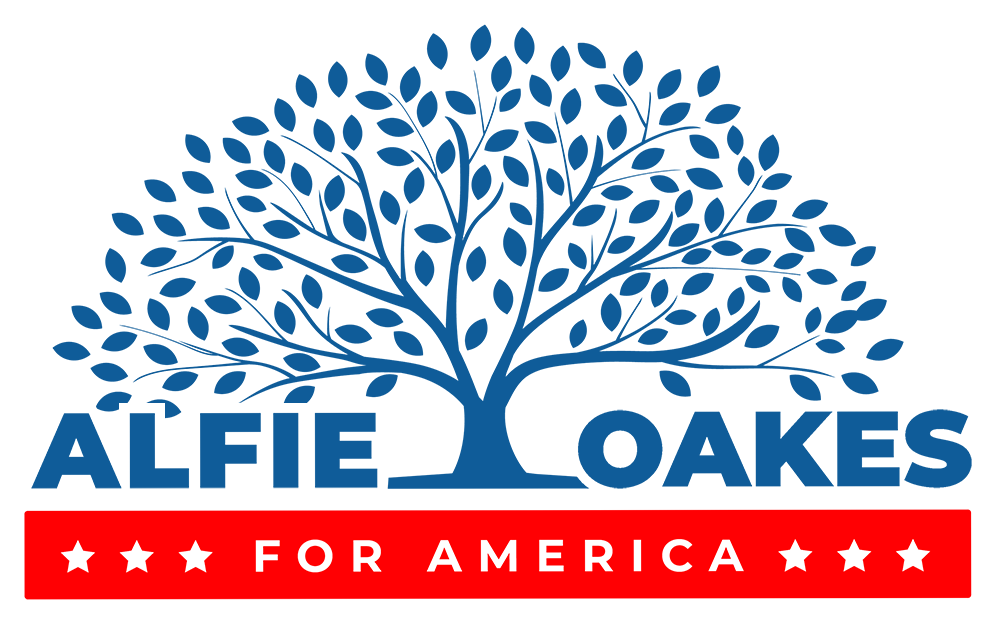In the midst of growing concerns about climate change, industrial farming practices, and the sustainability of global food systems, one entrepreneur is charting a bold new path forward. Alfie Oakes, a Florida-based farmer, businessman, and founder of Oakes Farms, is at the forefront of a revolution in the way we grow, distribute, and consume food. His vision is simple yet radical: to create a food system that prioritizes sustainability, local economies, and community well-being over corporate profits and mass production.
Oakes’ approach to farming, retail, and food distribution is a model that challenges the conventional norms of the modern food industry. By focusing on fresh, locally sourced produce, sustainable farming practices, and innovative direct-to-consumer retail strategies, Oakes is not just running a business—he’s leading a movement that seeks to redefine the future of food.
A Vision Rooted in Sustainability
At the heart of Alfie Oakes’ approach is an unwavering commitment to sustainability. In a world where industrial farming has become the norm—often reliant on monocultures, synthetic fertilizers, and large-scale animal production—Oakes has chosen a different path. His farm, Oakes Farms, is a thriving operation that emphasizes regenerative agricultural practices, organic farming, and environmental stewardship.
Regenerative farming, which focuses on restoring soil health, increasing biodiversity, and reducing carbon emissions, is at the core of Oakes’ farming philosophy. Instead of depleting the soil with chemical inputs and monoculture crops, Oakes works to build soil health through practices such as crop rotation, cover cropping, and composting. This holistic approach not only improves the long-term sustainability of the farm but also results in healthier, more nutrient-dense food.
By prioritizing soil health and biodiversity, Oakes is creating a food system that is resilient to the challenges posed by climate change. Regenerative farming can help sequester carbon, restore water cycles, and build resistance to pests and diseases, all while producing high-quality food. For Oakes, this isn’t just about the farm—it’s about rethinking agriculture itself as a solution to some of the most pressing environmental challenges of our time.
Reimagining the Grocery Store: Oakes Farms Market
Oakes’ revolutionary approach extends beyond farming to how food is distributed and sold. His flagship store, Oakes Farms Market, is more than just a grocery store—it’s a hub for fresh, local, and sustainable food that connects consumers directly to the farm. Located in Naples, Florida, the market is a showcase for Oakes’ commitment to offering high-quality, fresh produce, meats, dairy, and pantry items—all sourced from his own farm or from local, like-minded suppliers.
Oakes Farms Market operates on a direct-to-consumer model that cuts out the middleman, allowing consumers to purchase food directly from the source. This not only results in better prices for customers but also ensures that farmers get a fair share of the profits. In a world dominated by corporate grocery giants and global supply chains, Oakes is showing that there is a viable alternative that benefits both producers and consumers.
The market also serves as an educational space where consumers can learn about food production, sustainability, and the importance of buying local. Oakes Farms Market encourages transparency, offering customers the opportunity to engage with the food they’re purchasing and understand the practices that go into growing it. This is particularly important in a world where consumers are increasingly concerned about where their food comes from and how it’s produced.
Innovation in the Supply Chain
In addition to his work on the farm and at the market, Oakes is reimagining the entire food supply chain. While many traditional food systems rely on long, complex supply chains that often involve multiple intermediaries, Oakes is striving for a more localized and efficient model. By focusing on local food production and distribution, he is reducing the carbon footprint of food transportation, decreasing food waste, and ensuring that consumers receive fresher, higher-quality products.
One of the ways Oakes is innovating the food supply chain is through the use of technology and data. By implementing tools that track inventory, sales, and customer preferences, Oakes can streamline the distribution process and ensure that his market is always stocked with the right products. Additionally, Oakes is exploring new ways to use e-commerce and delivery services to connect with customers who may not be able to visit the physical store. This blend of modern technology and traditional farming is helping to create a more efficient, consumer-friendly food system.
Empowering Local Economies
Oakes’ impact isn’t just limited to the food he grows or the products he sells. His approach is also revitalizing local economies and communities. By focusing on local sourcing and supporting small-scale farmers, Oakes is helping to keep money within the community, create jobs, and support local agricultural systems. His farm provides employment for dozens of people, and his market serves as a hub for local producers who might otherwise struggle to find a marketplace for their goods.
This focus on local economies also extends to the relationships Oakes builds with his customers. At Oakes Farms Market, shoppers are not just consumers—they are part of a larger food movement that values transparency, sustainability, and community. Oakes’ commitment to fair prices for both producers and consumers helps to create an ecosystem where everyone benefits.
Oakes’ dedication to empowering local economies is also reflected in his advocacy for food sovereignty—a concept that promotes the right of communities to control their own food systems. Oakes believes that by supporting local farms, reducing dependence on corporate agriculture, and fostering direct relationships between farmers and consumers, communities can take back control over their food and ensure that it is produced in a way that supports both people and the planet.
Overcoming Challenges: A Bold Entrepreneurial Spirit
Of course, Oakes’ path has not been without its challenges. In a world dominated by corporate agriculture and mass-market grocery chains, Oakes is constantly pushing against the status quo. His outspoken views on food freedom, government regulations, and the need to dismantle corporate control over the food supply have made him a polarizing figure in some circles. But Oakes has remained undeterred in his mission, believing that change is not only possible but necessary.
His resilience and willingness to take risks have allowed him to overcome obstacles and build a successful, sustainable business. Whether it’s through expanding his farm operations, opening new markets, or advocating for policy changes that support local food systems, Oakes has shown that entrepreneurship is not just about profits—it’s about creating lasting change and solving real-world problems.
The Future of Food: A More Sustainable, Localized System
Alfie Oakes is leading a revolution in the food industry—one that challenges the assumptions of corporate farming, long supply chains, and industrialized food production. His commitment to sustainability, local agriculture, and community empowerment is not just a business strategy—it’s a blueprint for a more resilient, equitable, and sustainable food system.
As more people become aware of the environmental and health impacts of industrial agriculture, the demand for locally grown, sustainably produced food will continue to rise. Oakes’ approach offers a glimpse into the future of food—one where local farms, small-scale producers, and innovative entrepreneurs work together to build a food system that nourishes both people and the planet.
In a world where the future of food is uncertain, Alfie Oakes’ revolutionary approach is a reminder that the solutions may lie in the very principles of sustainability, community, and innovation that he has championed for years. The future of food, as Oakes sees it, is not only possible—it’s already here. And it’s rooted in the soil of farms like his.



